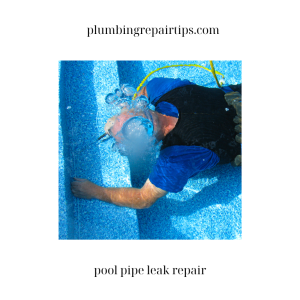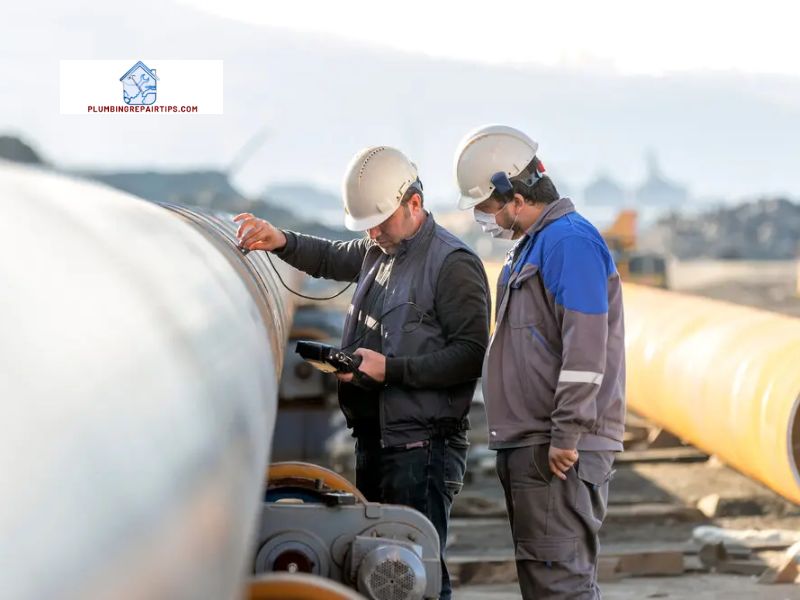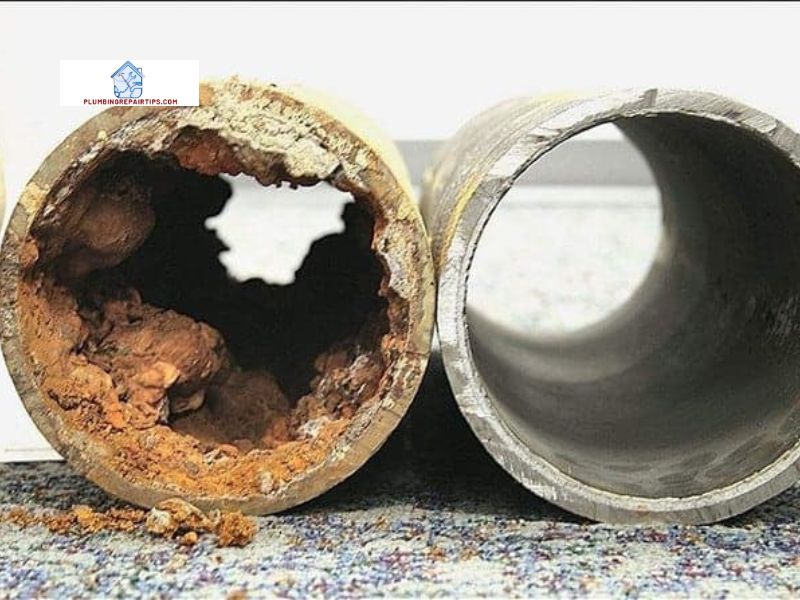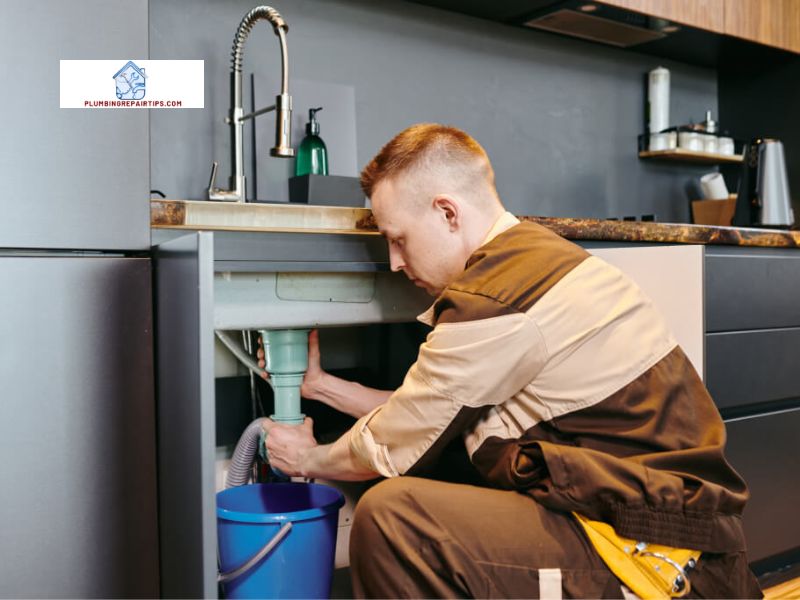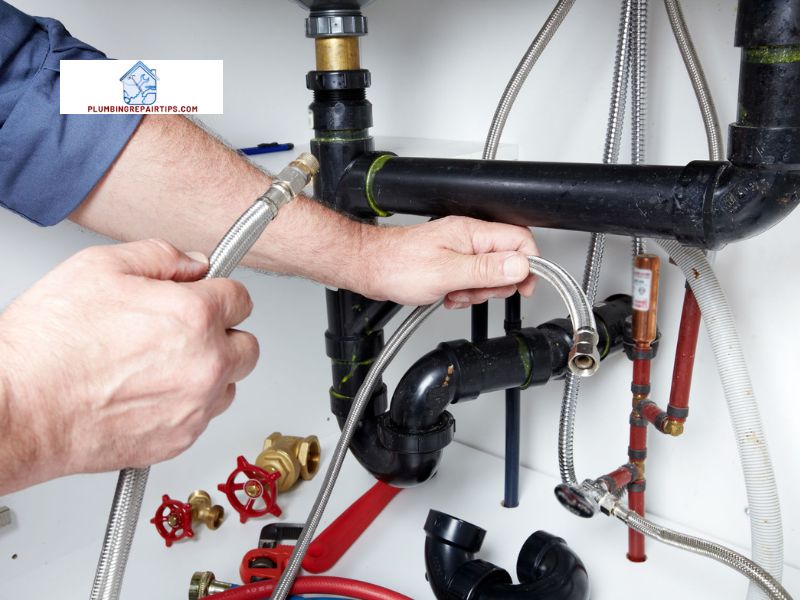Introduction
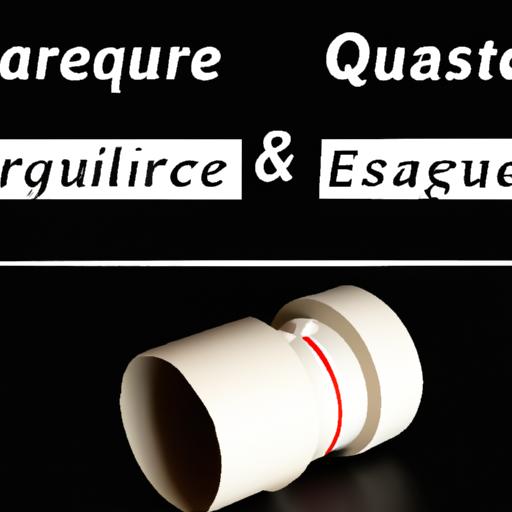
In earthquake-prone areas, safety becomes paramount. Imagine the terrifying thought of an earthquake rattling your home, and in the midst of chaos, a gas leak occurs, posing an imminent threat to your well-being. However, there is a solution that can provide peace of mind – the gas earthquake valve. Today, plumbingrepairtips.com wants to shed light on these remarkable devices and emphasize their importance in safeguarding homes against potential disasters.
Gas earthquake valves, also known as seismic shut-off valves, are innovative safety mechanisms designed to mitigate the risks associated with gas leaks during earthquakes. Their purpose is simple yet crucial – to automatically shut off the gas supply in the event of seismic activity. By swiftly stopping the flow of gas, these valves prevent hazardous leaks that could lead to explosions, fires, or even loss of life.
Gas earthquake valves are specifically engineered to detect the unique motion patterns associated with earthquakes. When seismic activity is detected, the valve promptly activates, closing off the gas supply and reducing the likelihood of a catastrophic event. This invaluable feature ensures that even if you are unable to manually shut off the gas in the midst of an earthquake, the valve acts as your vigilant protector.
Installing a gas earthquake valve in your home or commercial building is an essential step towards ensuring the safety of both occupants and property. With these valves in place, you can rest assured knowing that the risk of a devastating gas-related incident is significantly reduced.
So, let’s delve deeper into the benefits of gas earthquake valves and understand why they are a vital addition to earthquake-prone areas. Together, we can explore the various aspects of these valves, from selection and installation to maintenance, ensuring a comprehensive understanding of their significance in safeguarding homes.
Understanding Gas Earthquake Valves
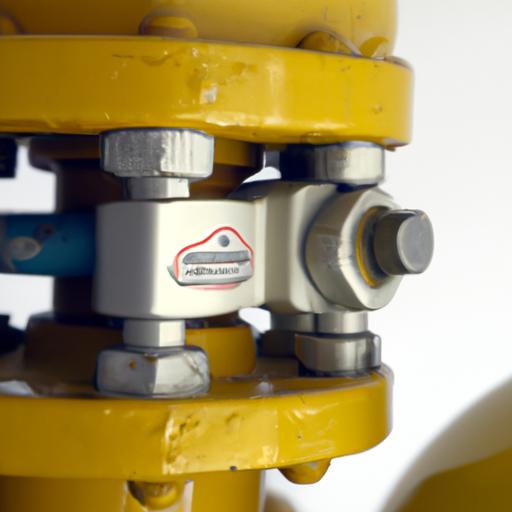
Definition and Purpose of Gas Earthquake Valves
Gas earthquake valves are sophisticated devices designed to safeguard homes and commercial buildings in earthquake-prone areas. Their primary purpose is to automatically shut off the gas supply during seismic activity, mitigating the risk of gas leaks and potential disasters.
These valves are meticulously engineered to detect the distinct motion patterns associated with earthquakes. By continuously monitoring seismic activity, they can promptly respond to even the slightest tremors. This proactive approach ensures that the gas supply is swiftly cut off, preventing gas leaks that could lead to fires, explosions, or other hazardous situations.
How Gas Earthquake Valves Work
Gas earthquake valves operate on a simple yet effective principle. They are connected to the main gas line entering the building, typically near the gas meter or at a specific entry point. When an earthquake occurs, the valve’s sensitive mechanism detects the seismic vibrations and triggers an automatic shut-off response.
The valve’s mechanism can be based on various technologies, such as a mechanical trigger or an electronic sensor system. Regardless of the specific mechanism, the valve’s objective remains the same – to rapidly close off the gas supply, minimizing the potential dangers associated with gas leaks during an earthquake.
Importance of Installing Gas Earthquake Valves
Installing gas earthquake valves is of utmost importance in earthquake-prone areas. The devastating consequences of a gas-related disaster can be prevented with the installation of these valves. By automatically shutting off the gas supply, they significantly reduce the risk of fire, explosions, and other life-threatening situations.
Both homeowners and commercial property owners should prioritize the installation of gas earthquake valves. These valves not only protect lives but also minimize property damage and potential financial loss. Moreover, they ensure compliance with safety regulations and codes, providing peace of mind and a sense of security.
Now that we understand the fundamental aspects of gas earthquake valves, let’s explore the myriad benefits they offer. In the next section, we will delve into the specific advantages of installing these valves and how they enhance safety in earthquake-prone areas.
Benefits of Gas Earthquake Valves
When it comes to the safety of your home and loved ones, investing in gas earthquake valves is a decision that yields invaluable benefits. Let’s explore the advantages these valves offer, ensuring increased safety, property protection, and compliance with safety regulations and codes.
Increased Safety and Protection against Gas Leaks and Explosions
Gas leaks can be disastrous, especially during earthquakes when the already unstable environment amplifies the risks. Gas earthquake valves act as the first line of defense, swiftly shutting off the gas supply when seismic activity is detected. By doing so, these valves prevent the release of potentially flammable gases, greatly minimizing the risk of explosions or fires. The immediate response of the valve ensures that your well-being and that of your loved ones are safeguarded, even in the midst of chaos.
Minimization of Property Damage and Potential Loss of Life
The consequences of a gas-related disaster extend beyond physical harm; they can result in extensive property damage and even loss of life. By installing gas earthquake valves, you significantly reduce the likelihood of such devastating outcomes. These valves act as guardians, preventing gas leaks and subsequent explosions that could destroy your home and belongings. Moreover, by minimizing property damage, they help reduce the financial burden that often follows such catastrophic events.
Compliance with Safety Regulations and Codes
As responsible homeowners, it is essential to ensure compliance with safety regulations and codes. Many regions require the installation of gas earthquake valves in earthquake-prone areas to enhance public safety. By proactively installing these valves, you not only protect your home but also fulfill your legal obligations. Compliance with safety regulations not only demonstrates your commitment to the well-being of your household but also contributes to the overall safety of the community.
In the next section, we will delve into the factors to consider when choosing the right gas earthquake valve. By understanding these aspects, you will be better equipped to make an informed decision that aligns with your specific needs and requirements. So, let’s continue our journey towards a safer and more secure home.
Choosing the Right Gas Earthquake Valve
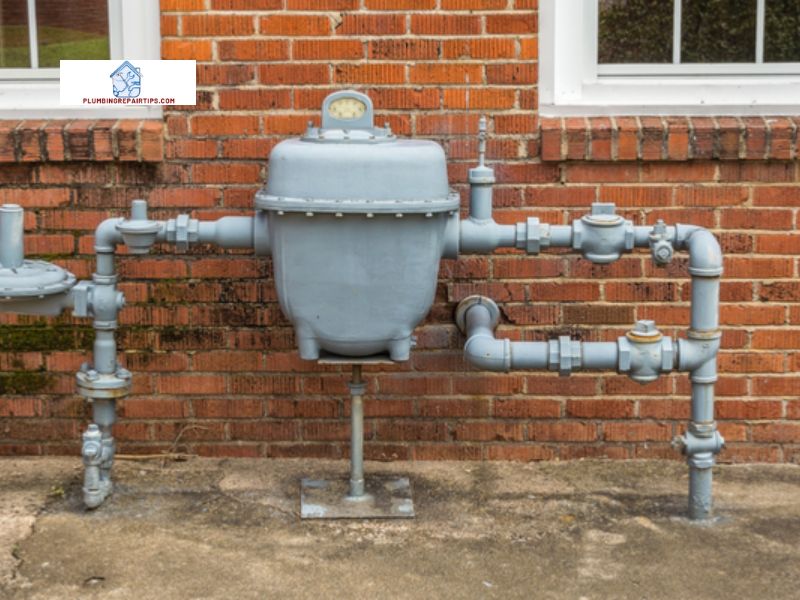
When it comes to selecting a gas earthquake valve, several crucial factors should be taken into consideration. Let’s explore these factors to ensure you make an informed decision that aligns with your specific needs.
Factors to Consider when Selecting a Valve
- Size: Gas earthquake valves come in various sizes to accommodate different gas lines. It is imperative to choose a valve that matches the size of your gas line to ensure compatibility and proper functioning.
- Compatibility: Not all gas earthquake valves are universally compatible with every gas system. Consider the specific requirements of your gas system and ensure the valve you select is compatible with it. Consulting with a professional plumber or gas technician can help you determine the right valve for your setup.
- Installation Requirements: Gas earthquake valves may have specific installation requirements. Some valves require professional installation, while others can be installed by homeowners with basic plumbing knowledge. Evaluate your comfort level and the complexity of the installation process before making a decision.
Evaluating Different Valve Options
With a wide range of gas earthquake valves available in the market, it’s essential to evaluate the options and choose one that meets your specific needs. Consider the following factors during your evaluation:
- Brands and Manufacturers: Research reputable brands and manufacturers are known for producing high-quality valves. Look for customer reviews and ratings to gauge the reliability and performance of the valves.
- Certifications and Compliance: Ensure that the valve you choose meets industry standards and safety regulations. Look for certifications from recognized organizations to guarantee the valve’s quality and adherence to safety protocols.
- Additional Features: Some valves may offer additional features such as remote shut-off capabilities or integration with smart home systems. Assess these features to determine if they align with your requirements and enhance the functionality of the valve.
Seeking Professional Advice for Proper Valve Selection
Choosing the right gas earthquake valve can be a daunting task, especially if you are unfamiliar with the technical aspects. To ensure proper valve selection, it is highly recommended to seek professional advice from licensed plumbers or gas technicians. These experts have the knowledge and experience to assess your specific needs and guide you toward the most suitable valve for your gas system.
By considering the size, compatibility, and installation requirements, evaluating different valve options, and consulting with professionals, you can confidently select a gas earthquake valve that provides optimal safety and peace of mind. Remember, the right valve is the foundation for a secure gas system in earthquake-prone areas.
Conclusion
In earthquake-prone areas, the safety of our homes and loved ones is of utmost importance. That’s why the installation of a gas earthquake valve is not just a precautionary measure, but a necessary step towards disaster prevention. By automatically shutting off the gas supply during seismic activity, these valves play a pivotal role in mitigating the risks associated with gas leaks, explosions, and fires.
Throughout this article, we have explored the significance of gas earthquake valves and how they help prevent potential disasters. We learned about their functionality in detecting seismic activity and swiftly cutting off the gas supply, ensuring the safety of both occupants and property.
When it comes to installing a gas earthquake valve, it is crucial to seek the assistance of a licensed professional who can guide you through the process. They will ensure that the valve is installed correctly and in compliance with local regulations, maximizing its effectiveness.
Additionally, regular maintenance is essential to ensure the proper functioning of the gas earthquake valve. By scheduling periodic inspections and following some simple maintenance tips, you can keep the valve in optimal condition, ready to respond when needed.
At plumbingrepairtips.com, we prioritize your safety and well-being. That’s why we emphasize the importance of gas earthquake valves in earthquake-prone areas. By taking proactive measures and installing these valves, you are not only safeguarding your home but also contributing to the overall safety of your community.
Remember, when it comes to protecting your home and loved ones, it’s better to be safe than sorry. Take the necessary steps today and invest in a gas earthquake valve. Let’s ensure that our homes remain safe havens, even in the face of seismic challenges.
Take control of your safety with a gas earthquake valve. Trust plumbingrepairtips.com to guide you towards a secure future.
